Cherie Blair: Breaking Barriers, Building Businesses – Catalysing Women’s Entrepreneurship in the G20
Global commitments to gender equality are not leading to action. It is high time for decision makers to value and prioritise women as business owners.

Ahead of the G20 New Delhi summit, where world leaders will discuss key issues facing the global economy, including women-led development and progress on the Sustainable Development Goals, our Founder Cherie Blair CBE KC calls on G20 governments to take action to advance women’s entrepreneurship and achieve women’s economic justice.
This essay forms a chapter in ‘Pathways to Equality: Advancing Gender Goals in the G20‘, a new compendium for G20 delegates compiled by the Think20 engagement group and published by Observer Research Foundation.
Women the world over have the appetite, ambition and potential to run their own lives and enterprises, and to be leaders in commerce, in their communities and nations. But many are prevented from flourishing while inequality holds them back.
Gender equality is a fundamental human right. It is explicitly noted in article two of the Universal Declaration of Human rights, and it is the fifth Sustainable Development Goal (SDG). Millions of women and girls the world over live their lives disadvantaged, lacking autonomy, resources and decision-making power simply because of their gender. At the current rate of progress the World Economic Forum estimates it will take more than 150 years to close the economic gender gap.
When it comes to tackling the world’s biggest challenges, like those on the agenda at the G20, there is hardly an area that is not positively impacted when women can thrive as business owners. Women entrepreneurs innovate and create jobs. They support better education, health, life outcomes and choices for their children. They work towards solving social and community issues. They advocate for women’s rights.
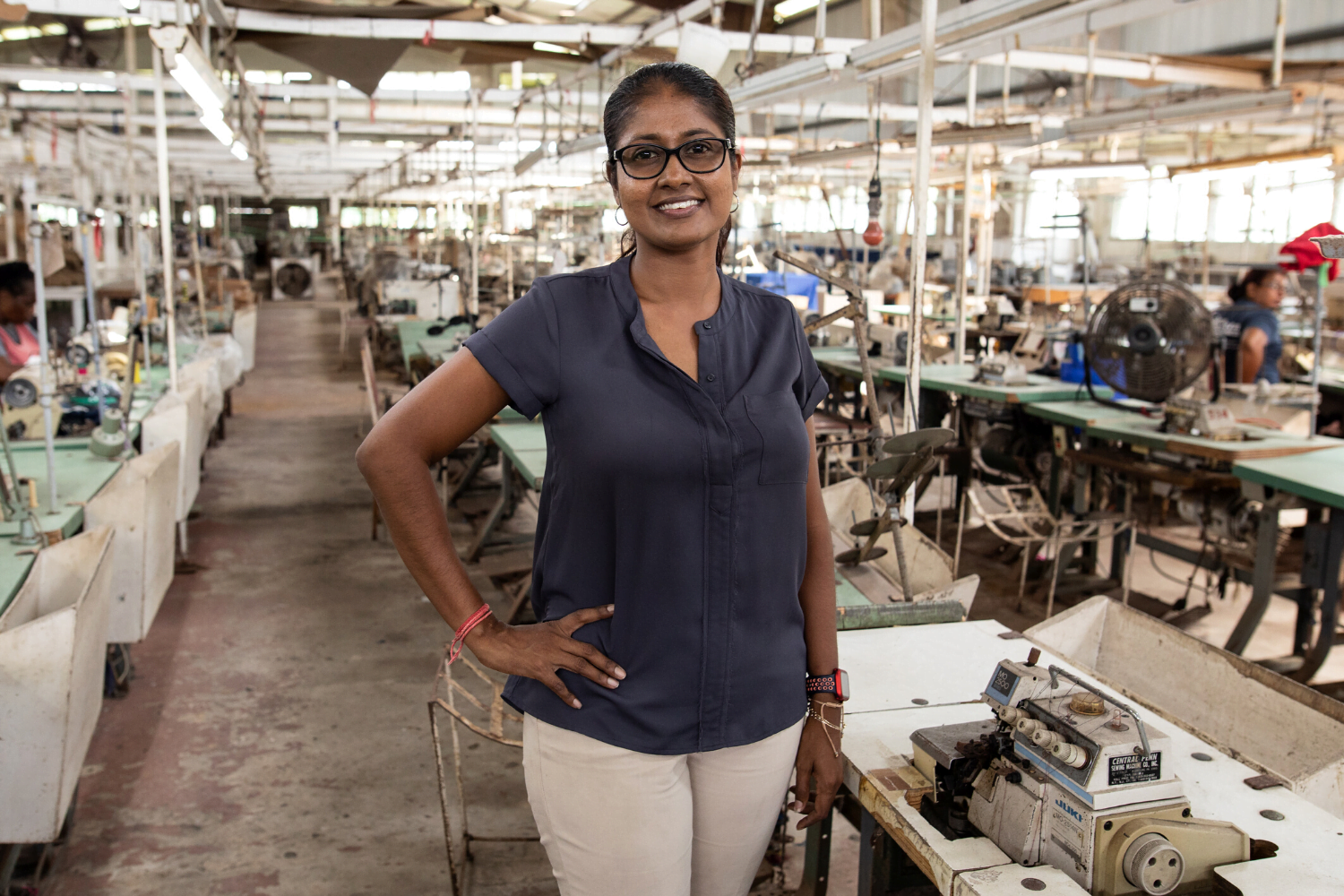
The Opportunity to Create Sustainable Change
Despite mountains of evidence of the importance of women entrepreneurs, their contributions are still terribly under-recognised and undervalued by the global community. The marginalisation and exclusion of women in business ownership is a human rights issue and remains largely unaddressed.
193 countries across the world are signed up and committed to the SDGs. Yet regressive laws, policies and practices—old and new—continue to unfairly restrict women entrepreneurs. The World Bank’s 2023 Women, Business and the Law report found that, shockingly, just 14 countries give women the same economic rights as men in the eyes of the law. This means that 176 economies maintain legal barriers that prevent women’s full economic participation.
The Cherie Blair Foundation for Women (the Foundation) works with women entrepreneurs in low and middle income countries (LMICs) to fight for women’s economic justice, a central tenet of gender equality. Together with partners around the world, the Foundation works with women so they can start, sustain and grow successful enterprises. We see every day the incredible ripple effect of positive impacts that women create when they are able to do so.
Damilola Asaleye is one such example. She is revolutionising energy in Nigeria through her company Ashdam Solar, which provides affordable access to clean energy. In this way, Damilola is both tackling energy poverty and paving the way for a more sustainable future. Thanks to her success she has also been able to set up an academy where she teaches other Nigerian women and girls to be leaders in technology and renewable energy. To share her words, “I see myself contributing to changing the world in a positive way… I see my work in trying to reduce energy poverty as very critical.”
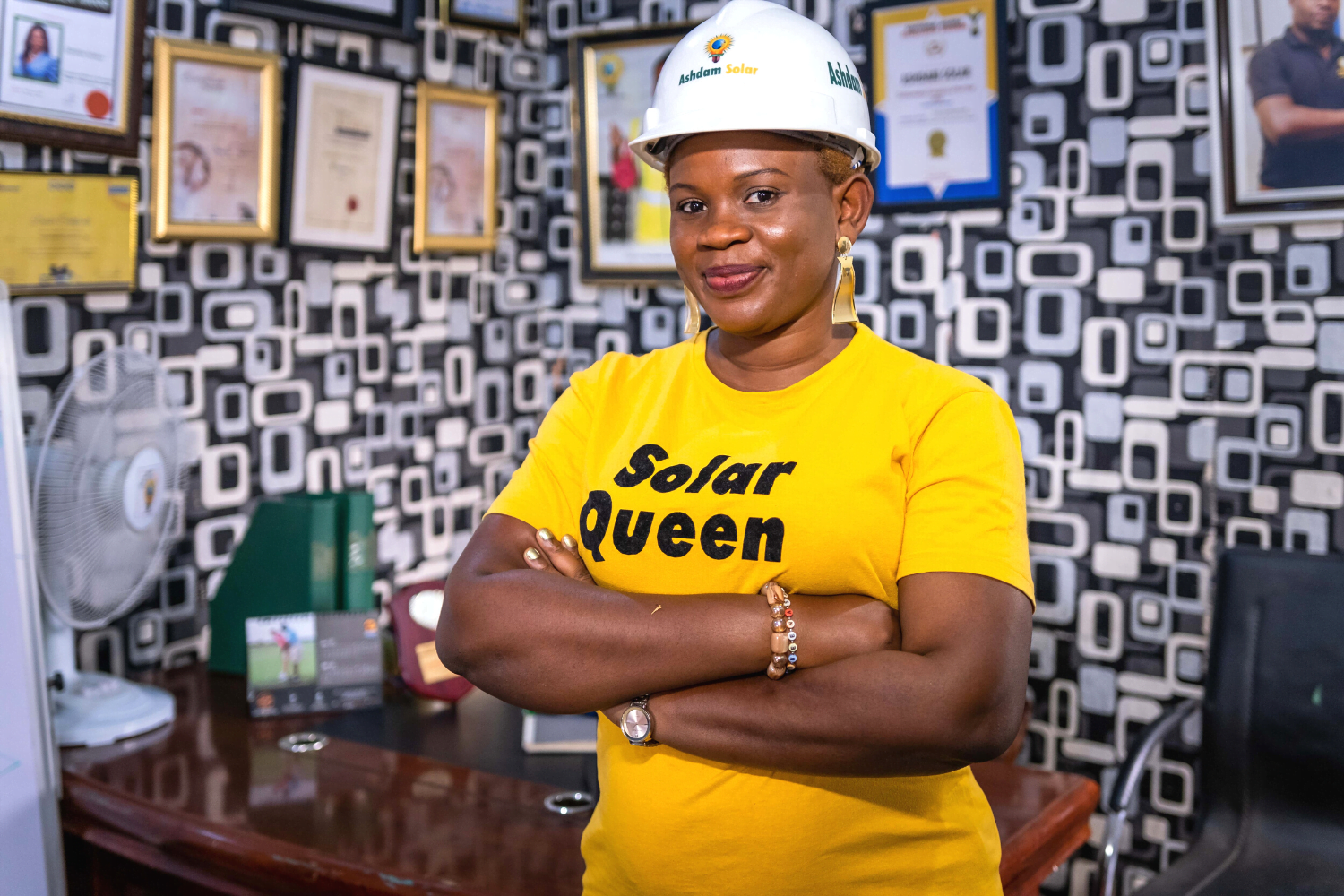
The Challenge: The gender gap in entrepreneurship is a cause and consequence of inequality
The global gender gap in entrepreneurship is multifaceted, pervasive and far-reaching. Worldwide, gender inequity is deeply ingrained in systems and institutions including education, healthcare, employment and governance. It intersects with factors like ethnicity, nationality, disability, class, caste and sexuality. It is deeply interlinked with issues such as health, education, violence, climate change and conflict. It manifests in multifarious ways that affect every facet of women’s lives. It must, as such, be holistically understood and dealt with.
Gender bias and stereotyping is a root cause of the gender gap in entrepreneurship. The Foundation’s own research into gender stereotypes, surveying 221 women entrepreneurs across 42 LMICs, found almost all (96%) of the women had directly experienced gender stereotypes in their lives. More than six in ten (61%) believe that gender stereotypes impact their business growth and almost half (49%) said they affect profitability. 55% also felt that institutions relevant for entrepreneurs in their countries are biased in favour of men.
The intersection between experiences of gender stereotypes and the ability of women entrepreneurs to access finance is stark. Over a third (36%) of women entrepreneurs surveyed by the Foundation reported a lack of access to finance as the main challenge they faced as an entrepreneur—by far the most common. Nearly a quarter (23%) of women also reported experiencing gender stereotypes or discriminatory remarks whilst trying to access finance for their business. One woman entrepreneur from Indonesia told the Foundation that “[an] angel investor was telling me that he has doubts on [sic] investing in woman founders because usually women are not that good at managing business.” It is abundantly clear that tackling gender stereotypes in business is urgent.
These women’s experiences of the world are qualified by new UNDP data that shows gender biases to do with work remain deeply entrenched: 40% of people worldwide still believe men make better business executives than women. Furthermore, the data reveals that there has been no improvement in biases against women in a decade.
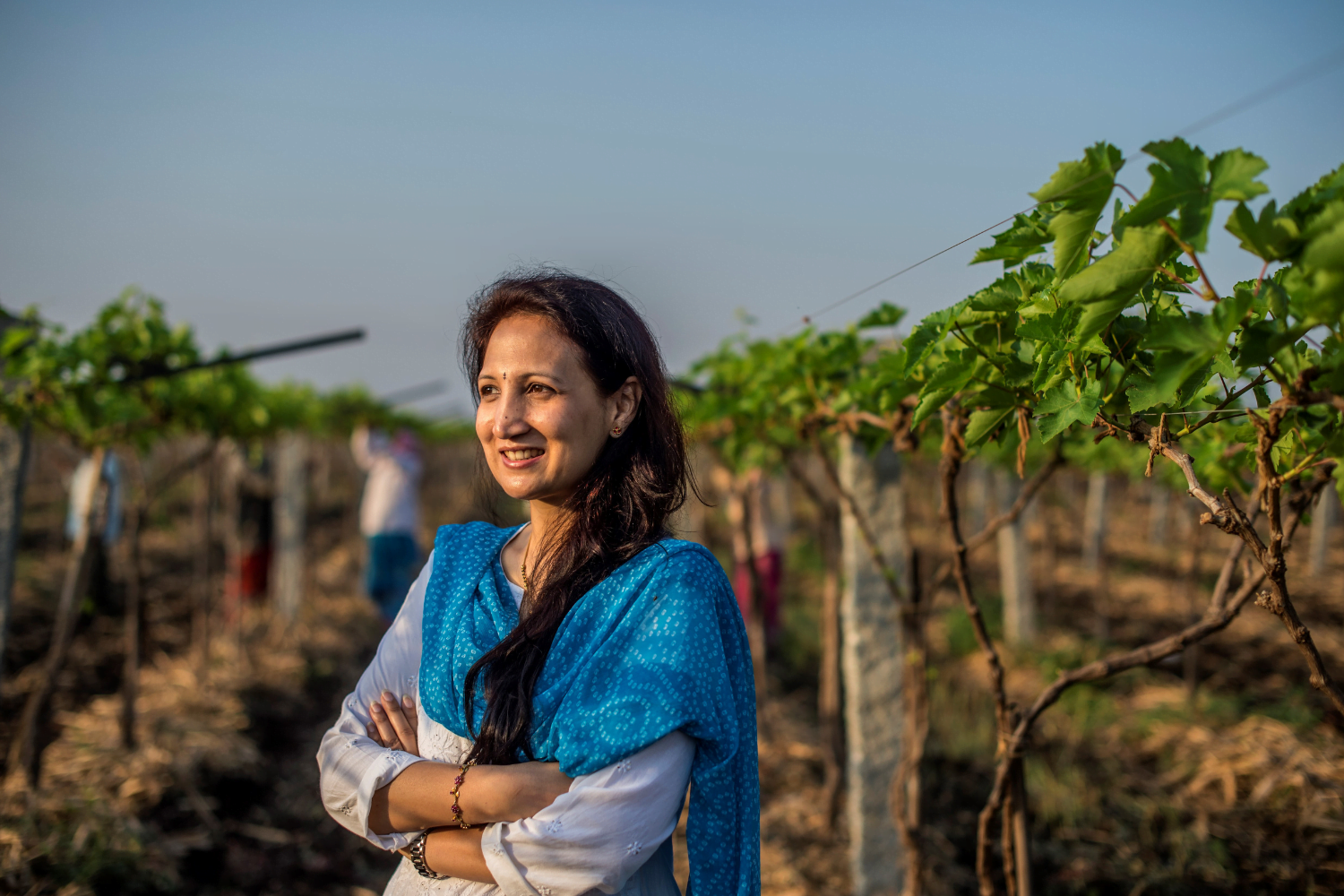
Despite great gains in women’s skills and education, an enormous gender income gap persists. The World Economic Forum reports that “stark income gaps continue to hinder economic gender parity, with almost half (48.1%) of the overall earned income gap yet to close”. The International Finance Corporation (IFC) furthermore indicates that women-led businesses have an unmet demand for credit of up to US$1.7 trillion. These gaps in income and financing are directly fed by gender stereotypes and bias, which stymie women’s access to markets, investments, credit and opportunities.
The baseless nature of gender bias and stereotypes is underscored by substantial data that shows that women business owners are stronger savers than men, more responsible borrowers and more calculated risk-takers. For example, research from Boston Consulting Group (BCG) and MassChallenge, analysing data from 250 start-ups that had received investment, found that for every dollar of funding, women-founded business generated 78 cents compared to 31 cents for those founded by men.
Despite considerable evidence of the benefits of investing in women entrepreneurs, gender bias remains hard-baked into business finance at every level. Banks often require assets and collateral that women are much less likely to have, and create products that favour typically male-led industries or types of businesses. Gendered disparities in education and skills acquisition affect women’s financial literacy levels. Cultural assumptions about businesswomen limit outreach to potential women clients. Gender-biased credit scoring and gender stereotyping in investment evaluations is rife. Furthermore, 104 economies still lack a legal provision that expressly prohibits gender-based discrimination in access to credit.
The intersection between experiences of gender stereotypes and the ability of women entrepreneurs to access finance is stark.
What this means is that hundreds of millions of women do not have equal access to the types of financial services—loans, credit cards, bank accounts—that will enable them to become entrepreneurs. Globally, more than 70% of women-owned formal small and medium enterprises have inadequate or no access to financial services, and worldwide, a US$287 billion gap in financing exists for formal, women-owned small businesses.
Unequal distribution of unpaid care work is one of the most critical factors affecting women’s entrepreneurship, and is strongly shaped by gender stereotypes. These affect the views and values relating to care work and contribute to the gendered division of care at the household, community and global level. This distribution forms a critical barrier for women entrepreneurs who have to juggle looking after children and other family members and carrying out domestic duties with running a business. This is compounded by women’s lack of access to finance, which sees them having to invest their own money into their businesses—by far the most common source of financial investment for women-owned businesses in low and middle income countries—leaving them with less money to pay for childcare and domestic support.
It is estimated that unpaid care work adds US$10.8 trillion USD to the global economy each year, equivalent to 9% of global GDP, yet because this work is disproportionately carried out by women and girls, it is chronically undervalued.
In late 2022, the Cherie Blair Foundation for Women surveyed over 700 women entrepreneurs across nearly 80 countries. Half of these women (49%) told us that their unpaid care workload had increased since the beginning of the pandemic, with 41% now carrying out four or more hours of unpaid care a day. Worryingly, almost one in five (19%) say that this has undermined the performance or limited the growth of their business.
Odunayo Anyibuofu, the founder of a clothing company in Nigeria, recently told the Foundation, “The challenge as a woman in this business is the family care. I need to take care of my girls. I home school them because of finance. And right now, I am the only one doing everything.”
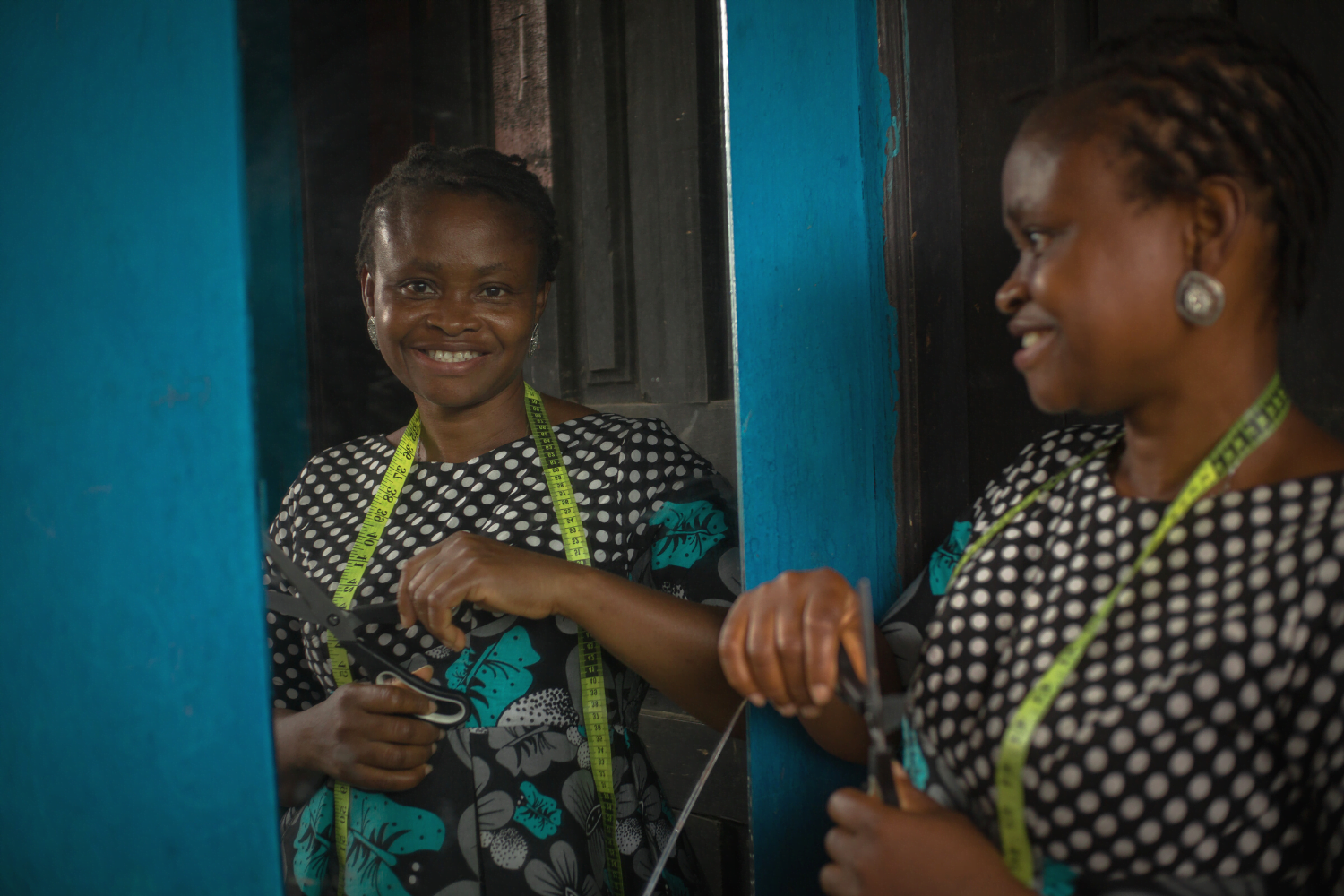
Action can and must be taken
That half of the world is held back from starting, growing or sustaining their business because of their gender is a travesty of human rights. It also means that we are collectively hugely missing out on the potential of women’s talents and ideas. Jobs are going un-created, ideas unrealised, services unprovided. We are missing out on global innovation, problem-solving and economic growth.
It should be clear to all G20 member states that in our shared vision of a world of democracy, freedom, justice, prosperity and progress—a world that works for everyone—this is an unacceptable state of affairs.
Evidently, tackling discrimination relating to entrepreneurship requires hard work in multiple areas. Policymakers and governments must first and foremost listen to women entrepreneurs themselves, ensuring that their voices are firmly heard in any conversations to do with them, and engage directly with women-centred and feminist organisations.
It is up to governments to dismantle the systemic barriers that perpetuate gender inequalities and create a more inclusive and supportive environment for women as business owners. Policy and legislation—if implemented and measured effectively—can provide a structured and systematic approach to creating lasting and widespread change for gender justice. The power of public campaigns targeting the elimination of gender stereotypes should also not be underestimated. Crucially, women’s right to equality must be enshrined in law and discriminatory laws, regulations and practices ended. For example, in 2021, Egypt, Gabon and Sierra Leone all made access to credit easier for women by prohibiting gender-based discrimination in financial services.
That half of the world is held back from starting, growing or sustaining their business because of their gender is a travesty of human rights.
Institutions and companies must be held to account regarding gender discrimination and resources and support must be directed effectively to women and women-centred initiatives. Societal norms and perspectives must be shifted in order to spearhead change at the personal, community and societal levels. Furthermore, gender disaggregation of data relating to business ownership is a must, after all, what gets measured gets addressed.
Strong partnership between public institutions, the private sector and development partners too is a highly effective way to challenge gender inequality in entrepreneurship through programming and advocacy. Many organisations are already doing the work, but are chronically underfunded. These programmes help to increase business management skills and financial literacy, support women to better manage the work-life balance, grow women’s business networks and strengthen confidence and leadership skills. Their fantastic outcomes and the ripple effects of impact that these generate are well-demonstrated.
Similar investment from governments is required in affordable, high-quality and accessible care and social services that would enable women to run their businesses. Governments must recognise, redistribute and reduce the unpaid care work disproportionately impacting women and ensure that national macroeconomic policies address the gender inequalities in unpaid care and domestic responsibilities.
Crucially however, one of the smartest things that governments can do is to invest in women-owned businesses. Governments must provide funding that is specifically designed with and for women entrepreneurs, that suits their needs and situations, so that they and their businesses can thrive and that communities and societies can reap the fantastic resulting benefits.
It is no exaggeration to say that women entrepreneurs have the power to change the world. It is high time for decision makers to value and prioritise them.
Update 13/09/2023
We are pleased to see all three priority themes detailed in this essay – gender stereotypes, women’s access to finance and unequal unpaid care work – reflected in the G20 New Delhi Leaders’ Declaration, as well as our position that these are vital to women’s economic empowerment and require urgent action by governments and policymakers.
Within the section ‘Gender Equality and Empowering All Women and Girls’, under the heading ‘Enhancing Economic and Social Empowerment’, G20 leaders confirm that they will ‘Promote investment in…affordable care infrastructure to address the unequal distribution in paid and unpaid care and domestic work and to promote the continued participation of women in education and employment; [to] promote women’s inclusion into the formal financial system by strengthening their access to economic resources, particularly through digital finance and microfinance [and to] eliminate gender stereotypes and biases, and change norms, attitudes and behaviours that perpetuate gender inequality.’
We welcome this commitment by G20 leaders, however we call on leaders to do more to ensure that women’s entrepreneurship is strongly recognised as central to women’s economic justice.
Read more news...
-
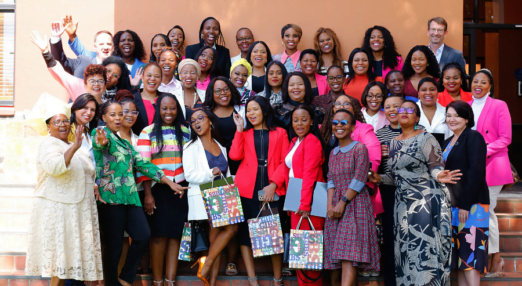
We’re supporting 45,000 women across Sub-Saharan Africa with DHL Express
Through our renewed multi-year partnership with DHL Express, we'll expand our reach and deepen our impact.
Read more
-
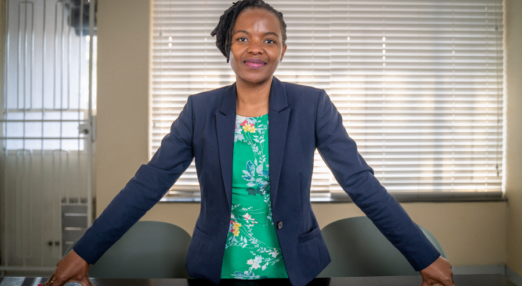
Building confidence: A key to women’s business success
Confidence is crucial for women entrepreneurs' business journeys. Our Senior Manager - Evidence and Learning, Rachel Seftel, explains.
Read more
-

Announcing our new trustees
We are delighted to welcome Suzanne Ehlers, Francesca Nxedhlana and Winnie Wambugu to our Board of Trustees.
Read more
